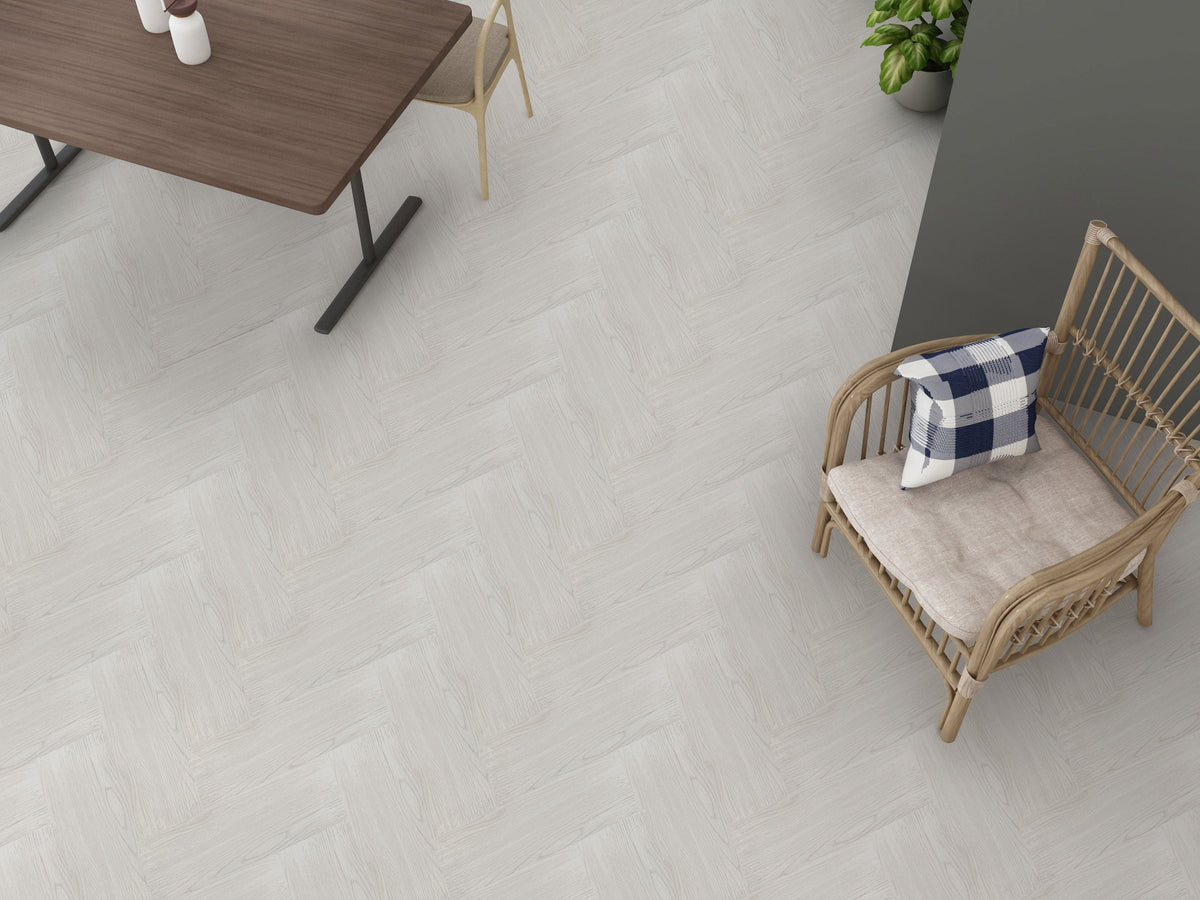
PVC vs. SPC Core Showdown: Which Core Layer Wins in Durability?
|
|
Lesezeit 5 min
|
|
Lesezeit 5 min
In this modern era, it is advisable to choose your flooring with care because of the variety of options available. While many homeowners prioritize durability, some prefer luxury and others choose flooring that complements their lives over expressing their personal preferences on durability.
However, rigid core flooring is one of the newest buzzwords in modern flooring. Many choices today offer a lot of value in a fashionable, durable and reasonably priced package. You have a lot of options when it comes to flooring for your house or business. Polyvinyl chloride (PVC) and stone plastic composite (SPC) flooring are two common choices. Therefore, the question is which core layer wins in durability, which one is better? This will help you make an informed decision when considering durability between PVS vs. SPC cores.
Table of Content
Vinyl flooring or widely called PVC core, is mostly composed of polyvinyl chloride and is a synthetic substance. Sheets, tiles, and high-end vinyl flooring are just a few of the many varieties available. They are very high in flexibility, durability, and very easy. Typically, PVC flooring is less expensive than other options. Particularly for low-budget endeavor while it provides good value for the money. Aside this they are:
Differs of Styles: You may get PVC flooring in a wide variety of colors, patterns, and textures that mimic the look of real materials like stone and wood.
High Water Resistance: Its exceptional water resistance makes it an ideal choice for frequently wet areas, such as kitchens and bathrooms.
Cosy: PVC flooring is more pleasant and cosy than SPC flooring because it is softer underfoot.
Stone Plastic Composite flooring, widely acclaimed SPC core for short, is a high-end vinyl tile option. It is extremely sturdy because it is built with stabilizers and limestone. Also, a vinyl covering imitating wood or stone is applied. It is very hard, highly durable, and water-resistant. Another interesting fact about the SPC core is there:
Hardness: SPC flooring is extremely durable and resistant to harm. No dings or scratches will show on it.
Constant Nature: Because of its solid core, SPC flooring remains relatively constant in size regardless of temperature variations.
Water Resistance: The water-repellent properties of SPC flooring make it an excellent choice for high-traffic areas, much like PVC flooring.
Adaptation to Technology: Also, the intorduction of sophisticated printing technology gives SPC flooring the appearance of natural materials such as wood and stone, giving it a convincingly lifelike quality.
Several factors should be considered while deciding between PVC and SPC flooring in terms of durability. It is possible, many homeowners who are on a tighter budget will like PVC core because of its lower price. SPC flooring is an excellent option for high-traffic areas due to its higher initial cost and durability. In contrast to PVC flooring, which can sustain damage more readily under heavy foot traffic, SPC flooring is extremely durable and resists damage effectively. Both varieties are water-resistant, but SPC flooring is ideal for wet locations because it is entirely waterproof.
Additionally, in terms of design, multiple patterns and colors of PVC flooring may be designed to mimic the look of natural materials like wood and stone. On the other hand, SPC flooring also has a realistic appearance, giving the impression of being made of natural materials. When comparing SPC and PVC cores, PVC is more comfortable to walk on because of its softer surface. With additional padding, SPC flooring can still provide a comfortable experience, as it aids in quieting a space. While PVC flooring is great for DIY, SPC flooring makes it more care-intensive, yet it is still straightforward to install.
Finding the sweet spot between form and function, longevity, comfort, and price is essential when shopping for flooring for your house or company. As an alternative to more conventional flooring materials like wood and laminate, PVC has become more popular in recent years thanks to its long lifespan, wide variety of styles, and low maintenance requirements.
The core material—Polyvinyl chloride (PVC) or stone plastic composite (SPC)—of an LVT system is a common point of contention. For your convenience, this article will walk you through these two main choices, outlining their features, benefits, and drawbacks so you can make a well-informed choice. Having a good grasp of these fundamentals will assist you in selecting flooring that perfectly suits your own requirements and tastes.
Finding the sweet spot between form and function, longevity, comfort, and price is essential when shopping for flooring for your house or company. As an alternative to more conventional flooring materials like wood and laminate, PVC has become more popular in recent years thanks to its long lifespan, wide variety of styles, and low maintenance requirements.
The core material—Polyvinyl chloride (PVC) or stone plastic composite (SPC)—of an LVT system is a common point of contention. For your convenience, this article will walk you through these two main choices, outlining their features, benefits, and drawbacks so you can make a well-informed choice. Having a good grasp of these fundamentals will assist you in selecting flooring that perfectly suits your own requirements and tastes.
There are a number of reasons why PVC core flooring is so popular:
There are a few downsides to using PVC core, despite its benefits:
Our choices are different, but when choosing, consider your needs, budget, and personal preference to determine whether you go with PVC or SPC flooring. SPC flooring is extremely durable and looks authentic; it is ideal for high-traffic areas and commercial spaces, while PVC flooring is versatile and inexpensive.
Remember, your choice will result in perfect flooring for your needs and improve the beauty and functionality of your property. However, before making a lasting decision about PVC vs. SPC, review their properties once again or seek the guidance of a professional.





